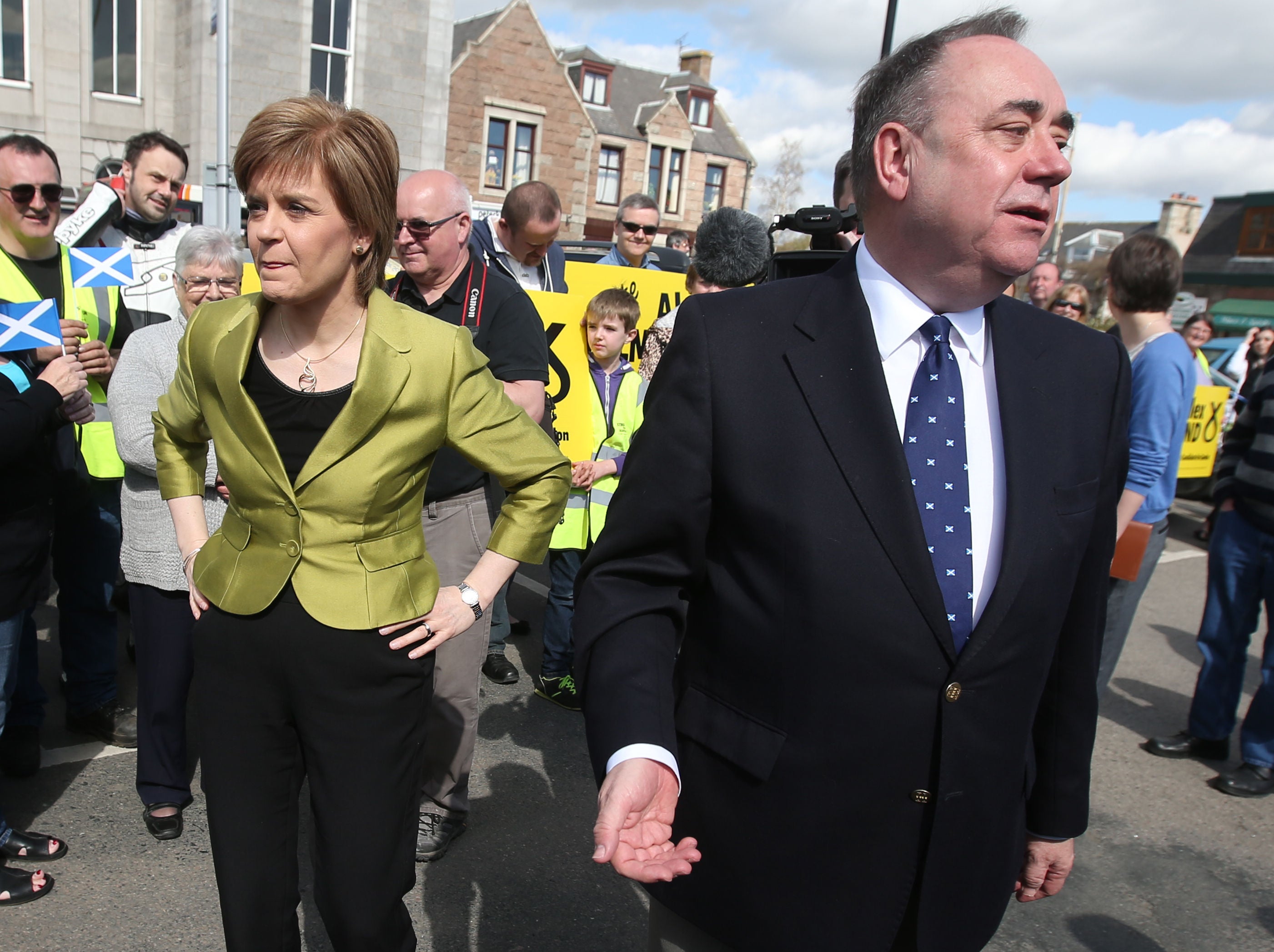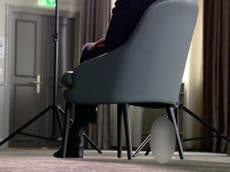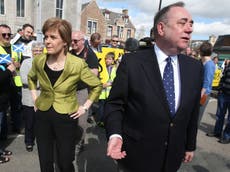Scottish politics is in disarray – the row between Alex Salmond and Nicola Sturgeon is hardly an endorsement for independence
No one would claim that Westminster and Whitehall are paragons of efficiency, but the procedural dramas in Scotland show that things are going badly wrong in Holyrood


Your support helps us to tell the story
From reproductive rights to climate change to Big Tech, The Independent is on the ground when the story is developing. Whether it's investigating the financials of Elon Musk's pro-Trump PAC or producing our latest documentary, 'The A Word', which shines a light on the American women fighting for reproductive rights, we know how important it is to parse out the facts from the messaging.
At such a critical moment in US history, we need reporters on the ground. Your donation allows us to keep sending journalists to speak to both sides of the story.
The Independent is trusted by Americans across the entire political spectrum. And unlike many other quality news outlets, we choose not to lock Americans out of our reporting and analysis with paywalls. We believe quality journalism should be available to everyone, paid for by those who can afford it.
Your support makes all the difference.One of the women who accused Alex Salmond, the former first minister of Scotland, of sexually assaulting her has said that the inquiry now being undertaken into the way the Scottish government handled the first claims is, for her, more traumatic than her participation in Salmond’s actual court trial (which was separate, though with obvious links).
The transcendent fact in all of this, I have to say at the outset, is that Salmond was found not guilty on all 13 charges. This is the prism through which everything else that is said and done has to be viewed. The legal fact of his complete acquittal means that the Scottish parliament is trying to conduct an inquiry into alleged shortcomings in the way in which officialdom dealt with the women’s claims in the first place.
Salmond launched a judicial review into the initial process because he always maintained that the way he was treated at first was flawed. The review agreed with him, found the Scottish officials had been biased and incompetent, and paid Salmond £512,000 to cover his legal fees. It did not, though, quite settle the matter of the role played by his successor as leader of the Scottish National Party and current first minister, Nicola Sturgeon, or that of whether she interfered in some way. Such questions still cast doubt, fairly or unfairly, over her fitness to govern.
So on top of the initial investigation, the subsequent trial of Salmond and the judicial review, there is now yet another inquiry, this time by parliamentarians. Even to those of us watching these bewildering procedural dramas with only half an eye, things are going badly wrong. No one would claim that Westminster and Whitehall are paragons of executive efficiency these days, but events in Edinburgh do not exactly clinch the case for independence, either.
Both Salmond and Sturgeon variously postponed their appearances before MSPs or withheld evidence. There is little trust in the process and no sign of it ever concluding satisfactorily. As is the custom with such inquiries, they attain a momentum of their own, and, as the chair Linda Fabiani insists, the inquiry will drag on just because it has to, no matter what.
It reminds one of the old song the troops used to sing in the trenches in the Great War, to the tune of Auld Lang Syne: “We’re here because we’re here because we’re here.” No doubt if the MSPs come back with the “wrong” result (probably inevitable), there will be another judicial review, or political attempt to expel Salmond or Sturgeon, or both, from the SNP. Of course that would then need to go to court. Scotland has discovered a weird form of political perpetual motion.
Reflecting in an admirably clear way on the circumstances, Salmond’s accuser has clearly had enough, and has talked to BBC Scotland’s Sunday Show about her frustrations. She rightly says that the inquiry’s remit is to make recommendations about protecting the human rights of women who are vulnerable, consistent with due process, but that “instead what has happened is they have taken your very personal experiences and exploited them for their own self-serving political interests, and that is something in itself that is really traumatic”.
Of course she does not speak for all of those involved in this long-running story, but her unease and pain is perfectly genuine, and she deserves to be listened to, if only for her courage in speaking out. For her and for others, it matters a great deal – and especially to Salmond and Sturgeon.
Yet what is being played out is nothing short of a squalid argument between two politicians who were once the closest of allies in a noble cause, or at least a respectable one, and who have since fallen out in Shakespearean fashion. To put things rather crudely, Salmond seems to think he was treated unfairly by Sturgeon, his former friend and protegee, and he wants his revenge on her. She, I presume, thinks he is being petty and vindictive, and wants revenge on him.
Behind that lie some rather inchoate political struggles completely unrelated to HR processes at Holyrood – about the culture of the SNP; its attitude to trans issues; its treatment of those, like Joanna Cherry MP, who dissent from the leadership; and about exactly how militant it should be about seeking independence.
The remarkable thing is that this row has had little effect on public opinion. The SNP’s ratings and support for independence are steady, even as the court cases, the accusations of bad faith and the allegations of misconduct have squalled around Scottish politics. Even before Covid, it seemed a story more about the past than the present or future, because no one thinks that, even if vindicated, Salmond is ever going to get his old job back – or that Sturgeon, even if crucified by the parliamentary inquiry, is actually going to quit.
Some of her critics call her “Nicola Trump”, which is bizarre, but she has the same quality of resilience that Nigel Farage noted was such an impressive aspect of Donald Trump’s persona. As it happens, that indomitable attitude to the vicissitudes of life is also something Salmond possesses in abundance.
That, I’m afraid, is why this saga will run and run for as long as Salmond and Sturgeon draw breath. Even on the day the union jack is hoisted down for the last time and Scotland’s nationhood is reclaimed, the pair won’t be speaking to each other, and will probably be consulting their lawyers.





Join our commenting forum
Join thought-provoking conversations, follow other Independent readers and see their replies
Comments